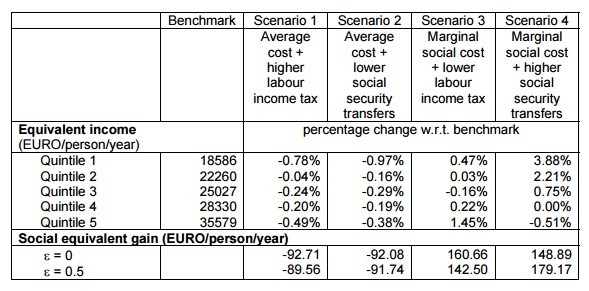The objective of the project was to support policy makers in setting charges for the use of transport infrastructure by the provision of appropriate methodologies and empirical evidence. The work of the project fell into three broad areas:
- development of methodologies and case studies for the measurement of marginal social cost,
- development of pilot transport accounts for all the countries of Western Europe and certain accession countries,
- consideration of how to integrate the information from transport accounts and marginal cost case studies in taking decisions on transport pricing.
The transport modes covered in UNITE and consequently by the case studies are: road transport, public transport, railway transport, aviation, inland waterway transport and maritime shipping. The case studies cover the cost categories defined in UNITE: infrastructure costs, supplier operating costs, transport user costs and benefits, accident costs, and environmental costs.

A major effort in UNITE was devoted to the development of so-called pilot accounts for all transport modes in all EU countries, Switzerland, Estonia and Hungary. The UNITE pilot accounts show the social costs (the cost of infrastructure, accidents, environmental damages, delays and the costs of supplying transport services) and the revenues from taxes, charges and subsidies of transport for a core year and two other years of analysis and forecast. For the first time, a comprehensive set of transport accounts, using a standard methodology, has been attempted for all EU countries. The accounts compare the social costs and revenues of transport on a national level. They were not designed to be a tool for directly setting transport charges or taxes but were intended to provide the data necessary for in-depth policy analysis. Furthermore the use of three years allow to monitor the development of transport related costs and revenues over time.
The main purposes of the UNITE accounts are to monitor:
- the level and structure of social costs and revenues,
- the progress towards sustainable transport,
- financial viability,
- equity,
- budgetary needs for second-best pricing schemes.
